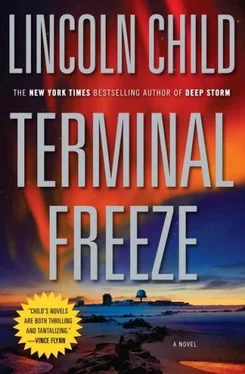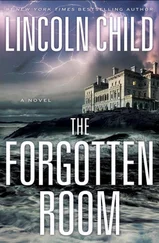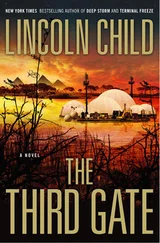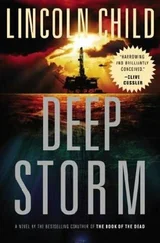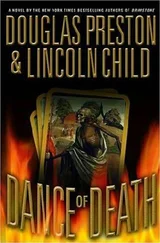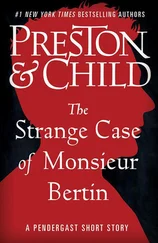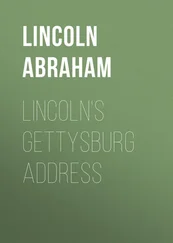“Maybe. But whatever it is, I think it’s of vital importance to the fossil record,” Faraday said.
Marshall frowned. “What do you mean?”
“I mean the theory of evolutionary turbulence.” Faraday cleared his throat. “It’s something that comes up now and then in biology. According to the theory, when animal populations grow too numerous for the ecosphere to support, or when a certain species becomes too comfortably adapted and loses evolutionary vigor, a new creature comes along to prune back the population blooms, force new changes.”
“A killing machine,” Barbour said with a glance at the ice block.
“Precisely. Except if the killing machine is too successful, it will depopulate its environment, lose its food source, and ultimately turn on others of its own kind.”
“You’re talking about the Callisto Effect,” Marshall said. “The alternate theory for what killed off the dinosaurs.”
Faraday nodded, glasses flashing in the brilliant light.
“That was championed by Frock of the New York Museum of Natural History,” Marshall said. “But since he vanished, I didn’t think anyone else had come forward to support it.”
“Perhaps our Wright is the new champion,” Barbour said with a grim smile.
“Sounds highly dubious to me,” said Sully. “In any case, even if you’re right, this corpse is no longer a threat to anybody, let alone an entire species.”
Conti stirred. Most of the shock had faded from his face, and his remote, faintly disdainful expression had returned. “I don’t know what you’re all getting so worked up about,” he said. “You can only see its head and shoulders-and a paw.”
“Ecce signum,” replied Marshall, jerking a thumb toward the ice.
“Well, we’ll all find out soon enough,” Conti replied. “For now, it stays a tiger. Meanwhile, your five minutes are up.” He turned to the tech. “Mr. Hulce, give Dr. Faraday back his camera. Then cover this up and make sure all the locks are secure. I’ll escort our friends here inside the base.”
Marshall was awakened by a rap on the door of the small compartment-formerly a warrant officer’s quarters-that served as his bunk. He rolled over, disoriented, rolled over once more and promptly fell out of the narrow bed.
“What?” he croaked.
“Get dressed, luv,” came the voice of Penny Barbour. “And hurry. You won’t want to miss this.”
Marshall sat up, rubbed his eyes, then glanced blearily at his watch. Almost six. As usual, he’d spent a restless night and hadn’t fallen asleep until two hours ago. He stood, dressed quickly in the warm dry air of the base, then stepped out into the hall. Barbour was waiting for him impatiently. “Come on,” she said.
“What is it?”
“See for yourself.” And she led him down the echoing corridors and up the central stairwell to the base entrance. They suited up in the weather chamber- Marshall noticed the temperature had risen significantly since he’d gone to sleep-then passed through the staging area and stepped outside.
Marshall stopped, blinking wearily in the predawn darkness. Despite the early hour the day’s work was well under way: he could hear hammering, shouts, the whine of a cordless drill. There was another sound, too, in the background: something familiar, yet elusive. Barbour led the way through the thicket of outbuildings, pausing not far from the vault, where a small knot of onlookers had gathered. With a faint smile, she pointed out past the perimeter fence.
Marshall stared into the gloom. At first he saw nothing. Then, in the distance, two pinpricks of light resolved themselves. As he watched, they grew larger: angry-looking yellow spots that reminded him uncomfortably of the eyes that had stared up at him out of the ice. As they continued to approach, other, smaller lights became visible. The background noise he’d noticed grew louder, as well. And now he recognized it: a diesel, and a big one.
“What the hell …?” he began.
A huge eighteen-wheeler was approaching them across the snow. It grew and grew in size, until at last it drew to a stop in the pool of lights beyond the perimeter fence, its engine idling. The tires were covered with heavy chains, and the cab was laden with filigrees of frost. Ice fog lay thick on the windshield, and the headlights and the canvas-covered grill were almost completely obscured behind a densely packed coating of snow and rime.
Barbour dug an elbow into his ribs, chuckled. “An articulated lorry. Now that’s something you don’t see every day in the Zone.”
Marshall looked at it in wonderment. “How did it get here? We’re a hundred and fifty miles from the nearest road.”
“He made his own road,” Barbour said.
Marshall looked at her.
“I asked the same question. That lot over there-the ones who told me it was coming-sorted me out.” And she pointed at the nearby onlookers. “Seems the driver is what’s known as an ice-road trucker. People like him drive the ‘winter road’-a road that exists only in the coldest months, a straight line over the frozen lakes, a temporary ice highway to get goods and equipment to remote camps and communities with no regular access.”
“Over frozen lakes ?”
“Not a job for the fainthearted, is it?”
“I’ll be damned,” Marshall said. It seemed so wildly anachronistic-a big rig here, in the Federal Wilderness Zone-he could hardly believe it.
“Normally they travel between Yellowknife and Port Radium,” Barbour said. “This was a special trip.”
“Why? What’s so important it couldn’t have been ferried in on a plane?”
“That.” And Barbour pointed to the trailer behind the cab.
Marshall ’s attention had been fixed on the cab of the truck. But now, as he glanced back toward the load it was carrying, he saw that it wasn’t the typical boxy container, but something more like an Airstream trailer-except several times larger. The sun was just now beginning to peer above the horizon, and the trailer gleamed in the newly minted light. In a perverse way, it resembled the submarines he sometimes saw berthed in the Thames when he drove through New London on the way to his parents’ house in Danbury. Its metal-covered flanks rose smoothly toward a gently curved roof, which in turn sported a small forest of antennas and satellite dishes. The large windows were hung with expensive-looking curtains, all carefully pulled shut. A small balcony with deck chairs-a truly bizarre touch, given the harsh environment-was set high up in the rear wall.
The semi’s engine rose to a roar again and it pulled forward, tire chains clanking. Two burly, leather-jacketed roustabouts detached themselves from the group of onlookers, trotted toward the security gates, and pulled them wide. The truck shifted into reverse and-with a succession of ear-shattering chirps-began backing its burden into the compound. Guided by the roustabouts, it crept back until the trailer was well within the perimeter fence. Then the diesel’s revolutions slowed; the driver shifted into park and killed the engine; and, with a hiss of air brakes, the vehicle shuddered into silence. The door of the cab opened and the ice-road trucker-a young, thinly built man, deeply tanned and dressed in a lurid Hawaiian shirt-jumped down and began uncoupling the trailer. Then the passenger door opened and another figure emerged. This one descended much more gingerly. He was fair-haired and tall, perhaps forty-five, with a closely trimmed beard. He slid to the permafrost with obvious relief. Collecting a large duffel and a laptop bag from the semi’s cab, he hoisted them over his shoulder and began walking stiffly toward the base. He nodded to Marshall and Barbour as he passed by.
Читать дальше
